Bo Selecta: the Craig David Story – Part One
Re-Rewinding the glory days of the Garage Godfather
Welcome to Culture Hash’s Garage month. We started with a much-belated review of Years and Years’ debut album, Communion, which showed the 2015 interpretation of the UK Garage genre, creatively titled “Future Garage”.
Now is the time to look back to the original genre and its most recognisable artist, Craig Ashely David. We are going to examine the fascinating career trajectory of a man who didn’t let the fact he has three first names hold him back.
Our journey will see him as a teenage prodigy, pop star, laughing stock and wash up. David now is in the midst of an improbable comeback; remarkably he’s only 35. Join me on this journey as Culture Hash presents the unauthorised biography of Craig David, part I.


“We had this connection, I was writing songs but I hadn’t got any music; they were writing music but they had no top line melodies. You couldn’t have asked for anything better.” – Craig David on meeting Artful Dodger in the late 1990s [2016]
5 quick facts about Craig David’s early years:
- He was born and raised in Southampton, the child of an Afro-Grenadian father and Anglo-Jewish mother. David grew up in a single parent household on a council estate.
- An overweight child, David was bullied at school [more on this later]. He recounts this experience in the moving “Johnny”.
- A musical prodigy, young David was writing music at 15, some of which ended up on his massively successful debut album.
- Heavily influenced by American R&B and Hip-Hop, David began MCing at Garage clubs. These factors had a major impact on his style.
- In 1997, he won a songwriting contest, the prize – R&B group Damage recorded a song he had written. “I’m Ready” was released as a B-Side to a 1997 single. Craig David was 16.
Before we begin, let’s take a moment to look at Garage. The genre arguably peaked between 1997 and 2002 and provided the blueprint for Grime and Dubstep. Garage finds it stylistic origins in R&B, Oldschool Jungle and House music, making it extremely well-suited to clubs.
The best way to understand Garage is to imagine a sped up hip-hop drum beat, with added flourishes like unusual or off-beat snare and kick placements. The pulsing rhythm of the drum gave it its original name, 2-Step.
A bassline with a strong dance groove would be laid over the drums; again these were often rhythmically peculiar and off-kilter. The beats were usually rounded off with sunny acoustic guitars or synthesised arpeggio loops.
Due to the fast-pace and club environment, there were many Garage rappers knocking around at this time. Their style came right from Old School Hip-Hop party raps.
What does it take to be a Garage MC? Personality. Originality. Repeating yourself constantly.
Repetition is very important; you’d frequently hear the first few bars of the rap again and again. Oftentimes these bars wouldn’t make logical sense, but were damn catchy. Consider:
- “Bound 4 Da Reload” – Oxide & Neutrino – all the verses kick off ‘Bound 4 the bound bound 4 the reload’. ‘Bound 4’ is repeated 40 times during the 5 minute track.
- “A Little Bit of Luck” – DJ Luck & MC Neat – a song where ‘With a little bit of luck, we can make it through the night’ is repeated 36 different times.
This is what made Garage wonderful: you needed to be a big personality to pull off rapping the same nonsense over and over and over and make it sound good. 20 years later people can still sing the words to “Little Bit of Luck” – all 35 of them. For added context this paragraph contains 46 unique words.
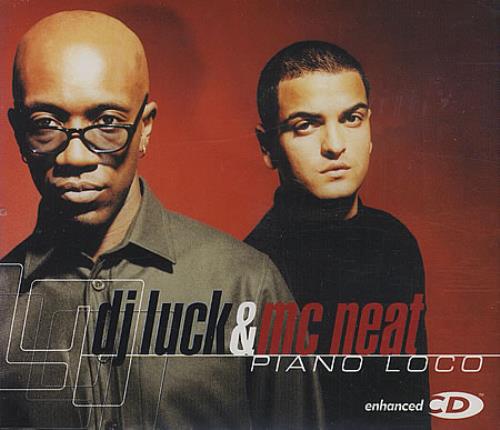
Back to Craig David, his path eventually crossed with fellow Southamptese Garage band, Artful Dodger. The main producer and songwriter of the group, Mark Hill, would take David under his wing and kick off one of the most successful musical partnerships of the early 2000s.
Work began on Craig David’s debut album in 1997; meanwhile, Artful Dodger released “Re-Rewind (The Crowd Say Bo Selecta)” with David on vocals. The song started doing the rounds on the still-underground Garage scene, growing until it became the group’s breakout hit in 1999 and went Platinum.
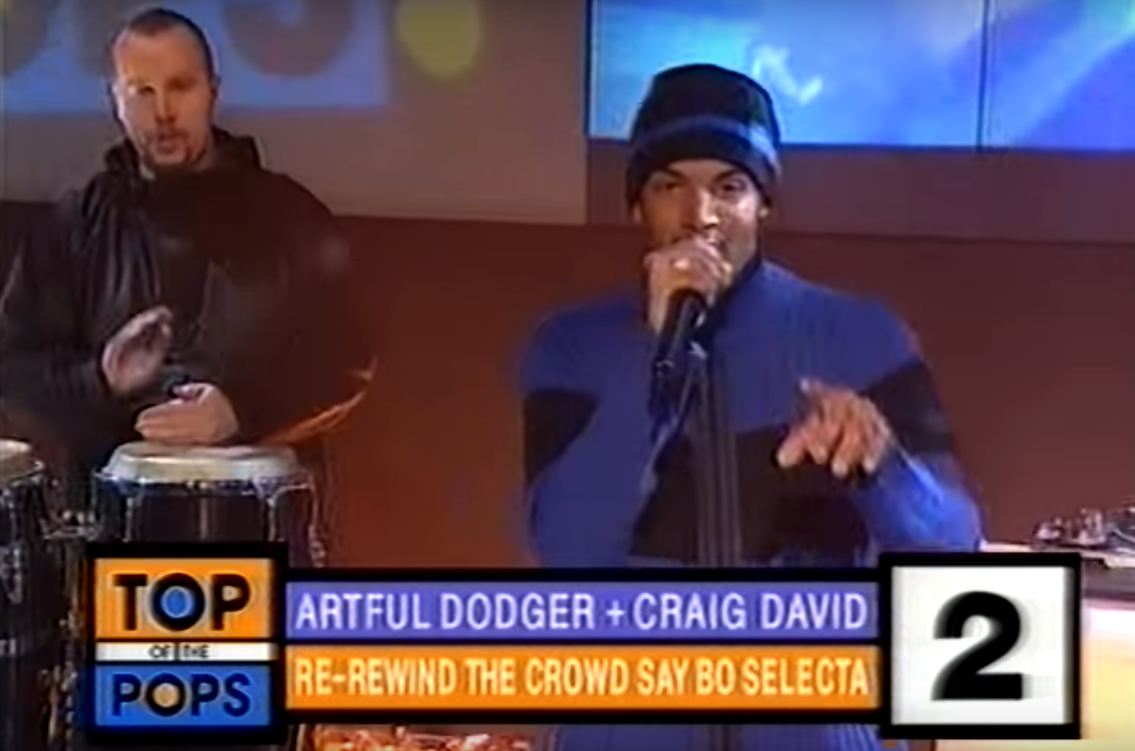
“Re-Wind” introduced the genre and Craig David, to the mainstream. It features plenty of catchy repetition, has a great beat and 17(!) years later, gets people dancing.
Artful Dodger’s debut album, It’s All About the Stragglers was released in November 2000 with Craig David featured on three standout songs. The 18-year-old raps and sings while projecting an astonishing amount of confidence and swagger. His talents for writing hooks was critical in helping the album reach Gold certification in the UK.

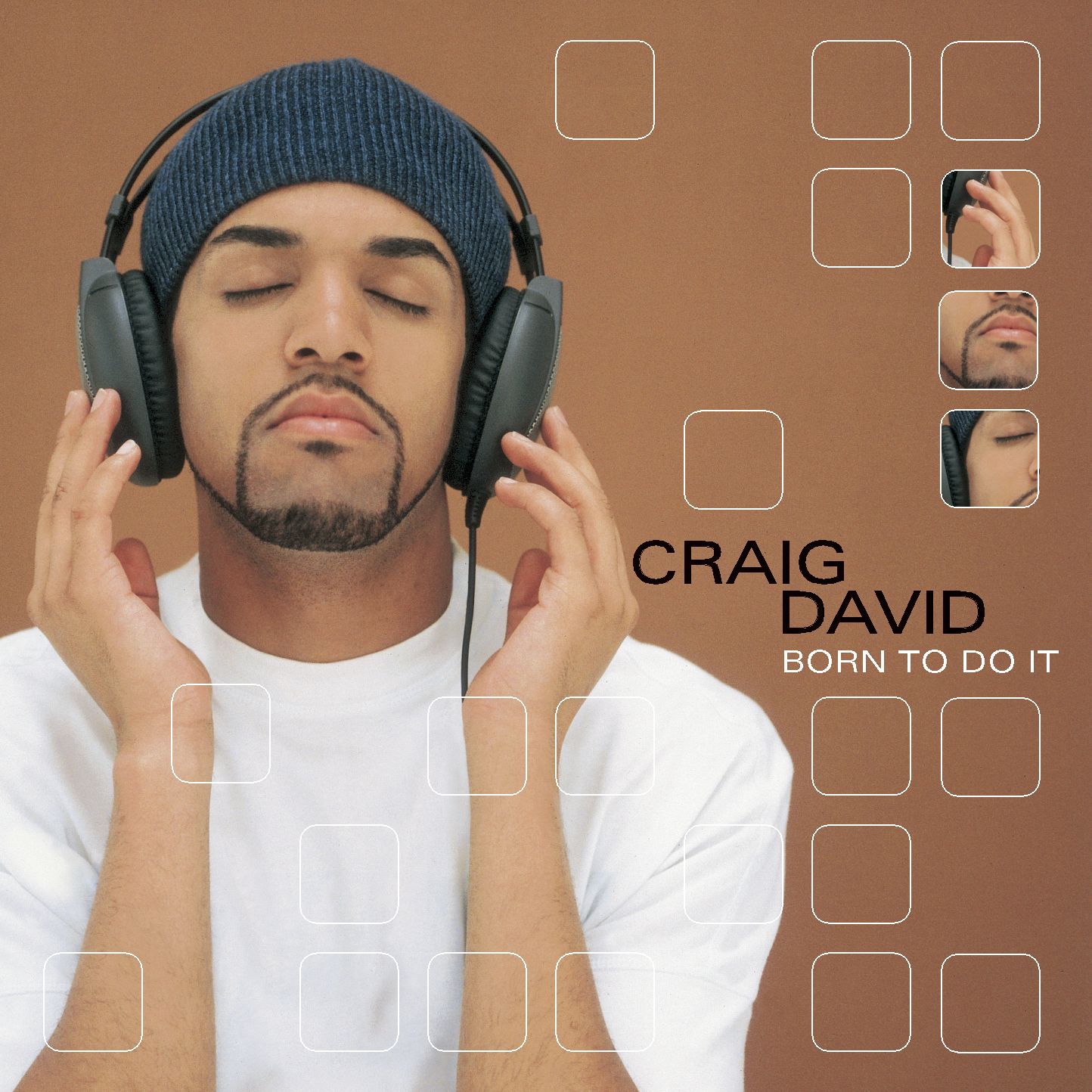
3 Interesting Facts:
- Mark Hill mentored David through the process of the album and has co-writing and co-production credits on every track.
- An early demo version of the track “Last Night” was re-imagined to become “Re-Wind”
- A 2009 MTV public vote on the Greatest Album Ever [since 1981] saw Born to Do It come #2 behind Thriller and before Guns ‘N’ Roses – Appetite for Destruction.
Technically Born to Do It [August 2000] came out before It’s All About the Stragglers [November 2000]; however, the buzz generated from the singles “Re-Wind” and “Woman Trouble” were invaluable to David’s success:
- It is the fastest-selling debut studio album ever by a British male solo act, a record which stands today.
- It spent 62 weeks on the US Album chart, peaking at #11 and was certified Platinum

Born To Do It opens with the fantastic “Fill Me In”, one of the most important songs of David’s career. It debuted at #1 before the album was released, giving the singer his first taste of solo chart success. David reused the hook on a 2015 freestyle that went viral and announced his return to the public eye.
This album also marks David’s slow departure from making Garage music as he began to drive further into R&B. Hill’s influence kept David from fully departing from Garage by infusing his beats with R&B elements.
Slower tracks like “Rendezvous” show David’s talent for crafting smooth R&B ballads, as he croons over the soft acoustic guitar. “Walking Away”, a song David wrote aged 17, further showcases his songwriting chops; he sounds wise beyond his years.
Of course, the biggest hit from this album is the wonderful “7 Days”, with its memorable hook and Groundhog Day-inspired video. David comes across as a cool and charming R&B ladies’ man who meets a girl on Monday, gets freaky two days later and every day until Sunday.
His biggest hit to date, the track saw a DJ Premier remix with two Mos Def verses added for good measure. “7 Days” gave David his second consecutive number one in the UK, with 100,000 copies sold in the first week.
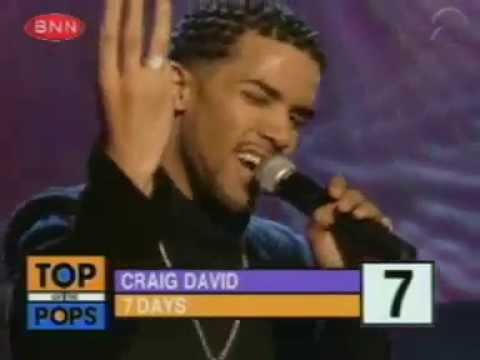
Born To Do It is front-loaded; towards the end the Spanish guitars and songs about getting laid begin to wear a bit thin. My favourite second-half track is the hilarious “Booty Man”, which interpolates “Candy Man”, but with a surprise twist! Craig David is the titular Booty Man. He loves touching people’s bums so much, he made a song about it.
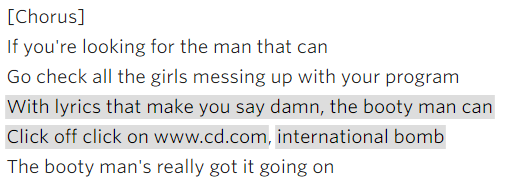
The best bit is when David asks the audience to visit him on his website www.cd.com. This was 2000, the internet was still a novelty and it must have been extremely cool to talk about having a website back then. I mean, R. Kelly called his 2000 album, TP-2.com. If R&B has taught me anything, it’s that if you had a website in the early 2000s and weren’t getting laid, something was wrong.
Born To Do It is a great album full of stories of Craig David’s sex life and clubbing adventures. He crafts it into a non-offensive and coherent project; you can sing along to these songs with your mum and it wouldn’t be weird.
8 out of 10

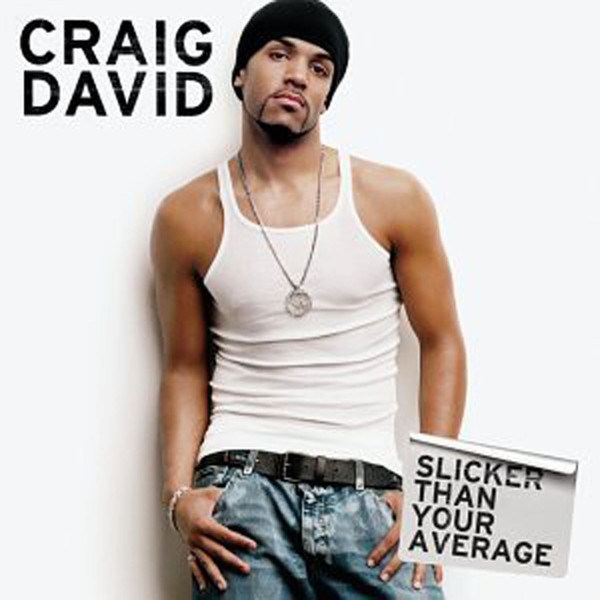
- Craig David introduced Fraser T. Smith to the world, he produced the corny “World Filled With Love”. Smith would later go on to produce hits for Adele, Taio Cruz & among others.
- Mark Hill only produced 4 songs, the beginning of the end of the partnership. In the time since the Born to Do It was released, Artful Dodger had broken up.
- Sting is featured David reinterprets his track “Rise & Fall”, showing how big the Southampton singer had become

Slicker Than Your Average takes its title from the opening bars of Notorious B.I.G.’s “Hypnotize” which is also sampled on the opening song, also called “Slicker Than Your Average”. The first Craig David song without involvement from Mark Hill; a defiant R&B/Hip-Hop hybrid that addresses the haters.

This trope comes straight from hip-hop, where many albums begin with similar songs. The second Jay-Z album has one of the best examples of this. “A Million And One Questions” addresses people questioning whether Hov could match the success of Reasonable Doubt. He did.
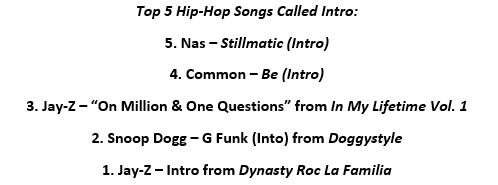
“Slicker Than Your Average” has a hip-hop beat with a scratched hook, very much in the vein of DJ Premier. David spits a rap, about gold diggers and how he will never settle for an album that sells less than Gold.

This album is the high-water mark for David’s confidence levels and this continues on the second track, “What’s Your Flava?” A song which compares women of different races to ice cream flavours:
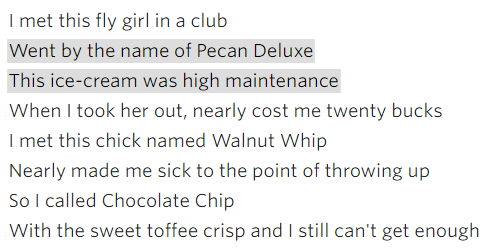
This subject had already been done by Raekwon on the classic “Ice Cream”, a song which manages to compare human beings to ice cream in a more clever and subtle way than “What’s Your Flava”. If you have to reduce an entire gender to flavours, there’s a big difference between Craig David saying:

And:

“What’s Your Flava?” blatantly tries to appeal to the American audience; David talks about wearing Timberland boots and paying in dollars. This continues throughout the album which is inspired by the American R&B of the day – gone are the garage days. Even the album cover looks like an American version of Born To Do It, with David wearing a wifebeater and posing in a more aggressive stance.
“Fast Cars” typifies all of the above, from the Neptunes-lite beat which sounds like a poor man’s “Shake Ya Ass”. It’s all about David’s love of fast cars and fast women. The track ends with a voiceover from a police helicopter as it fails in chasing a speeding driver [Craig David]. Edgy.
Slicker Than Your Average is a spotty, unfocused album; it bounces between straight rap tracks like “Eenie Meenie” and nauseating R&B ballads like “Well Runs Dry”. The lack of Artful Dodger input and obvious pursuit of an American audience makes it feel less inventive and original. David also sounds like a man carried away with his fame and is far less likeable.
These combine to make an incoherent and at-times boring second album. 6 out of 10.


2002 also saw the launch of Leigh Francis’ [aka Keith Lemon] Bo Selecta, a sketch comedy that lampooned celebrities, a big show in the UK at the time. The most memorable target was Craig David, who was portrayed in a plastic mask and wildly inaccurate Yorkshire accent.
This Craig David spouted memorable catch phrases like “Bo Selecta”, “Can I get a rewind?” and of course “Craaaig David”. David had been a seemingly ubiquitous celebrity since 1999 and was a fixture of kiss and tell stories in the British tabloid press. Bo Selecta latched on to this and derided him for caring more about pursuing an American audience.
The weekly ridicule of David meant his career was never the same. He lost his most important asset, his cool. Craig David used to be really fucking cool, but when he lost this, it sent his career into a tailspin.
Imagine if a similarly personality-based musician like Drake suddenly was not cool; people would find it hard to get invested in his stories of girls and money. For guys like this, personality plays a large role in the music.

You need that believability. Without that, Craig David was transformed from smooth R&B player into a loser who repeated his name ad nauseam and had lame catchphrases. Consequently he pretty much vanished the public eye for over a decade. Think what happened to Ja Rule after 50 Cent destroyed his career and credibility.
As a childhood victim of bullying, the public mockery affected Craig David’s confidence and furthered his career decline. These quotes reveal the extent of this emotional damage dealt by Bo Selecta:
“I was really bothered by it. My personal life was being affected by it. Normally I’m very chilled, but every time I went out people were saying Craig David in a northern voice. I’d say to them, ‘Do you think you’re the first person to say that?’ -Craig David
First of all you go, ‘I’ll ride this because I’m stronger than this.’ Then it gets to a point where you think, ‘What can I do to stop it?’ ” – David
“I didn’t like it that Craig David got pissed off and I didn’t want him thinking that wanker ruined my career. A lot of people think that I ruined him, but I don’t write his songs. He does.” – Leigh Francis
With this crisis of confidence, it is time to conclude chapter 1 of the Craig David Story. In the second and final part we will look at the next stage of our hero’s career, or as I like to call it, the “no one cares” years. Until his welcome return to public relevance and restoration of his mojo. A redemption story up there with Austin Powers 2: The Spy Who Shagged Me.




Did Craig Davids ever own the website http://www.cd.com? I have searched the content of the website through some wayback machines but never saw Craig on the website.
Love the commitment to check wayback machine!
I’m not sure if he ever owned that domain, but he certainly claimed to have done so in his songs